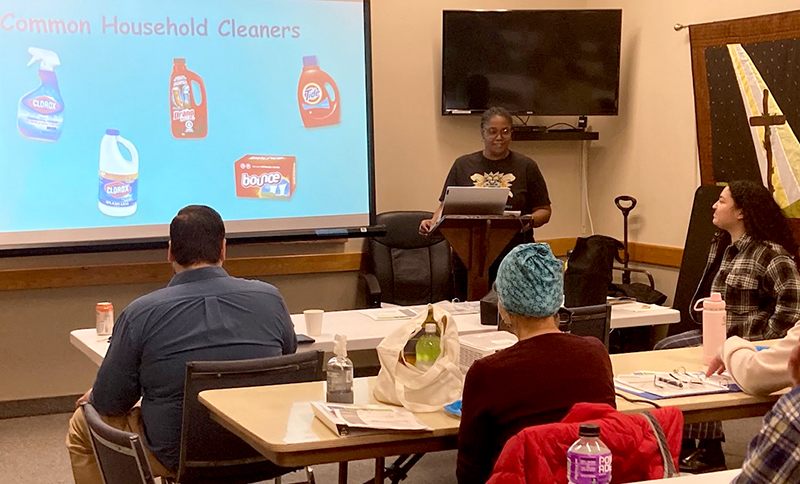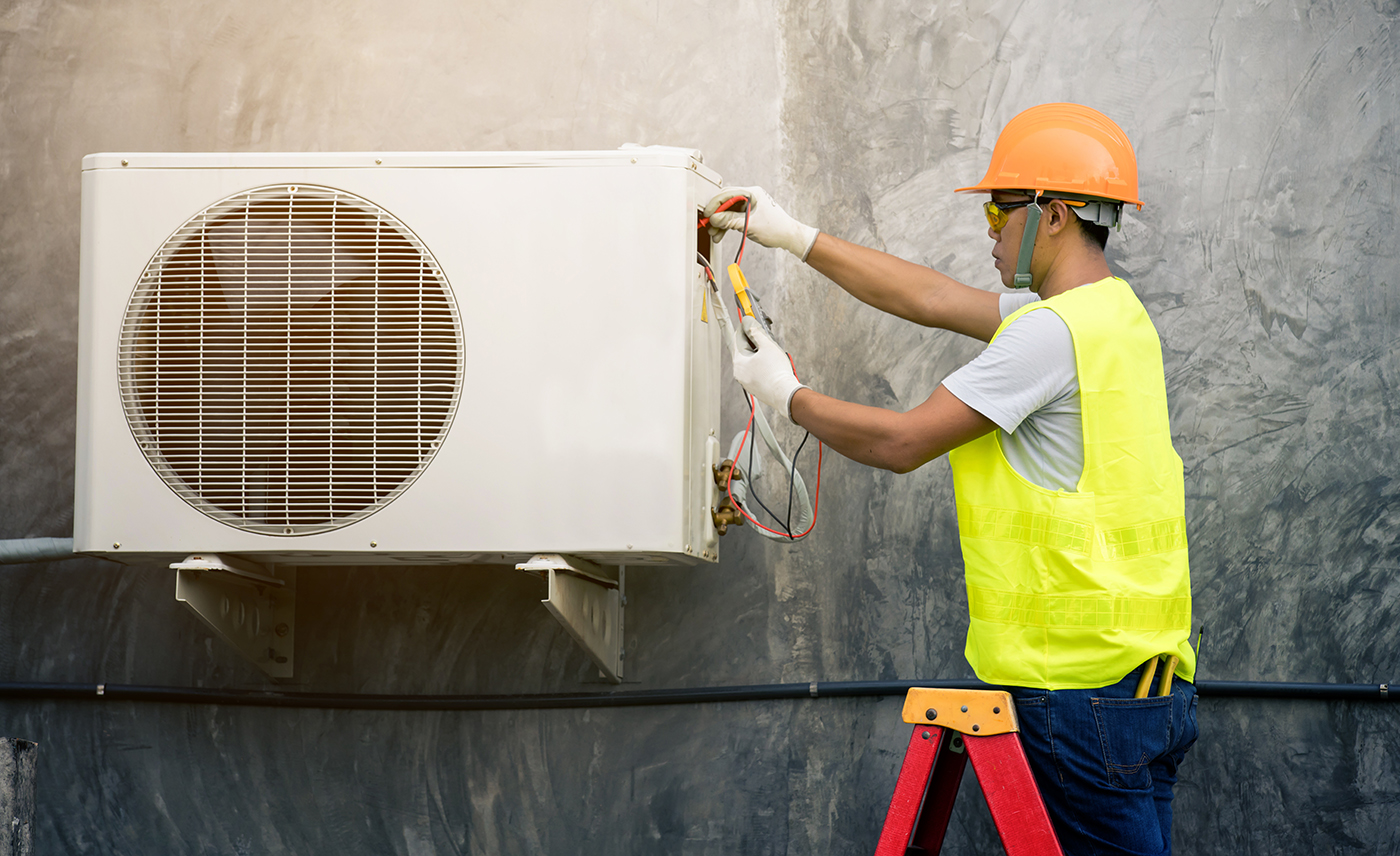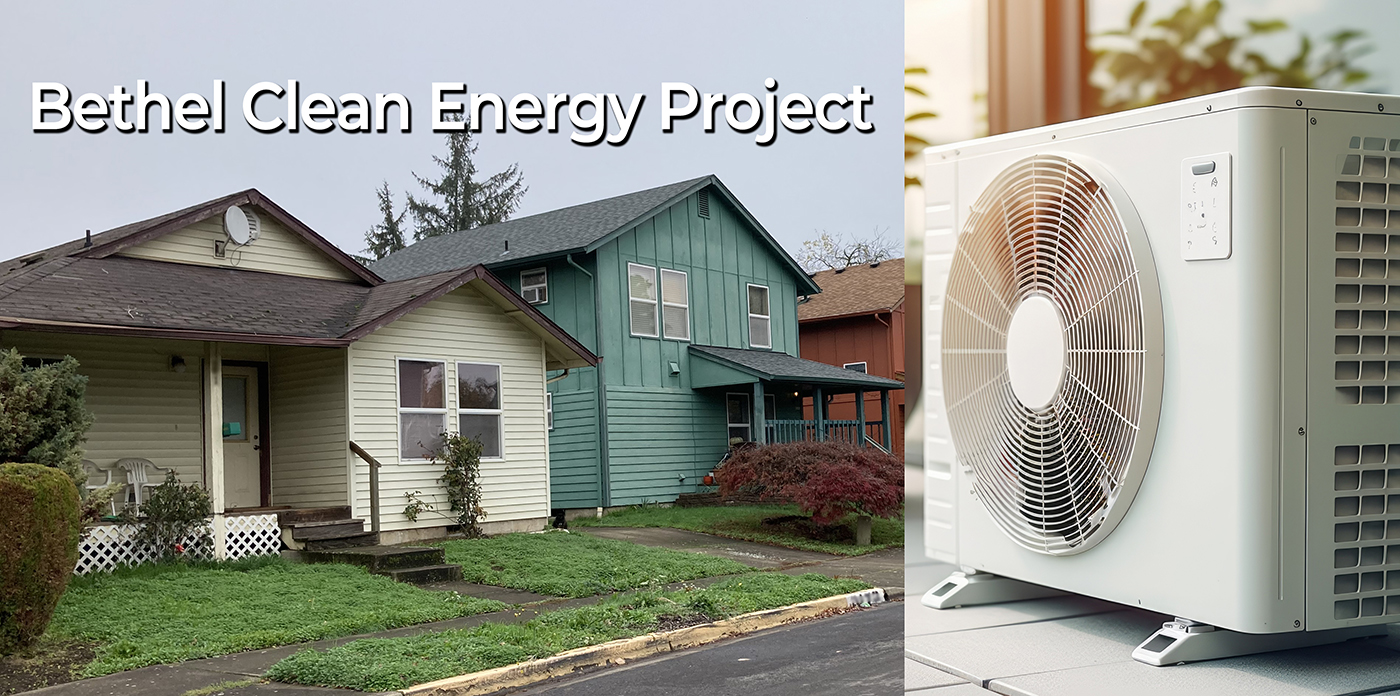Bethel Clean Energy Project
Read our NEW Bethel Clean Energy Feasibility Study (PDF)
Read the Executive Summary
Read more background about the study
What is the Bethel Clean Energy Project?
The Bethel Clean Energy Project is an innovative pilot program that focuses on making clean energy technologies accessible to Bethel residents. Our mission is to collaborate directly with neighborhood residents, to research and identify the best options for implementing free or low-cost clean energy home improvements! These improvements will not only save money but also contribute to addressing community concern about our local air, water and soil quality. In partnership with VertueLab and Business Oregon, this pilot project specifically addresses the needs of residents directly affected by pollution from the former J.H. Baxter site. Our ultimate goal is to establish a model that makes clean energy more accessible and benefits communities impacted by industrial pollution.
Project Goal
At the heart of our project is a commitment to working closely with the community to assess the feasibility of various types of clean energy initiatives. We aim to collaborate with city, state and federal agencies to secure funding through incentives, grants and rebates and zero-interest loans. By doing so, we empower residents to embrace clean energy and make positive changes to their homes that save them money!
Bringing Clean Energy to Bethel: The Benefits
By implementing clean energy solutions, we anticipate a range of benefits for the Bethel community, including:
Engaging the Community
Initially, community involvement has been limited to residents in the Bethel area who are directly affected by soil pollution from operation of the now shuttered J.H. Baxter factory. Our team of canvassers were out visiting the neighborhood to sign up people who showed interest in participating in pilot projects.
Read our NEW Bethel Clean Energy Feasibility Study (PDF)
Read the Executive Summary

Meetings in the Bethel neighborhood provide opportunities to learn about energy conservation and the risks of using common household products. BT staff pictured: Arjorie Arberry-Baribeault (left) and Alyssa Rueda (right). Photo by Emily Matlock.
Exploring Clean Energy Technology for Bethel
We are considering several clean energy initiatives appropriate for the Bethel area

Heat Pumps: A Two-Way Solution for Year-Round Comfort
In contrast to traditional HVAC appliances, heat pumps can run in both heating and cooling mode — filling the role of both an air conditioner and a furnace. Heat pumps running in heating mode have an energy-saving edge over a traditional gas or electric furnace: the heat pump simply moves heat rather than creating it through fossil fuel combustion or electric resistance. This key difference enables heat pumps to reach far greater levels of efficiency. Reference
Building Insulation and Windows
Energy-efficient homes often incorporate key improvements such as insulation, air leak sealing and window enhancements. These simple and affordable measures can be implemented without the need for professional contractors. For example: If a typical homeowner invests $1,000 on their home, they can save up to $300 on energy bills each year and enjoy year round indoor comfort!
Solar Energy
Solar cells, also called photovoltaic cells, convert sunlight directly into electricity. A solar electric or photovoltaic (PV) system can reliably produce electricity for your home or office. These small solar systems are often installed by home or business owners to offset their electricity costs.
Solar systems convert light (photons) to electricity (voltage), which is called the photovoltaic effect. Today, electricity from solar cells has become cost competitive in many regions and photovoltaic systems are being deployed at large scales to help power the electric grid. https://www.nrel.gov/research/re-photovoltaics.html






